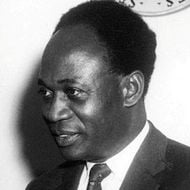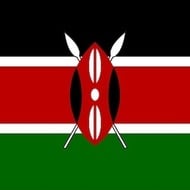#42,464 Most Popular
About
Former politician and anti-colonial activist best known for becoming Kenya's first President in 1964. He had previously served as Kenya's Prime Minister and from 1961 until his death in the year 1978, he also acted as leader of the Kenya African National Union party. After being imprisoned under false charges for over 7 years, he mediated the terms of Kenya's independence and over the course of his life, he played a substantial role in sculpting the history and character of the nation.
Before fame
He was born into a family of Kikuyu farmers in the village of Ngenda and raised in line with customary Kiyuku traditions. He left home as an adolescent to study at the Church of Scotland Mission and his academic prowess quickly helped him earn a position as a carpenter's apprentice in the mission. He worked an assortment of jobs before going on to study at the Communist University of the Toilers of the East in Moscow, University College London, and the London School of Economics.
Trivia
Between 1938 and 1971, he authored 5 publications, including "Facing Mount Kenya," "My People of Kikuyu and the Life of Chief Wangombe," and "Suffering Without Bitterness." During his presidency, he substantially widened the scope of education for Kenyan youth and helped increase the life expectancy to a higher rate than most any other area in Sub-Saharan Africa. He was widely referred to by Kenyans as the Father of the Nation and earned honors from international powers such as the South Korean government and Pope Paul VI.
Family life
His mother was named Wambui and his father was named Muigai. He had a brother named Kongo and a half-brother also named Muigai. He did not believe in monogamy and instead led a polygamous lifestyle. He and his first wife, Grace Wahu, were the parents of a son named Peter and a daughter named Margaret, the latter of whom would eventually become the mayor of Nairobi and the Kenyan ambassador to the United Nations.
Associated with
During his wrongful imprisonment, numerous world leaders of the time fought for his release, including Indian Prime Minister Jawaharlal Nehru and the Prime Minister of Tanganyika, Julius Nyerere. The President of Ghana, Kwame Nkrumah, also brought the matter before British Prime Minister Harold Macmillan.







